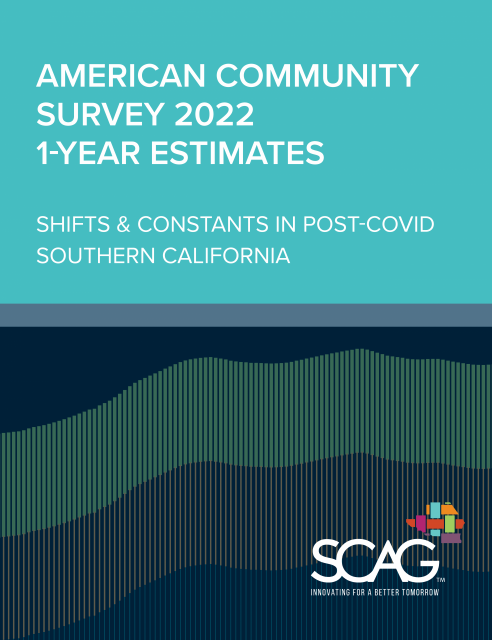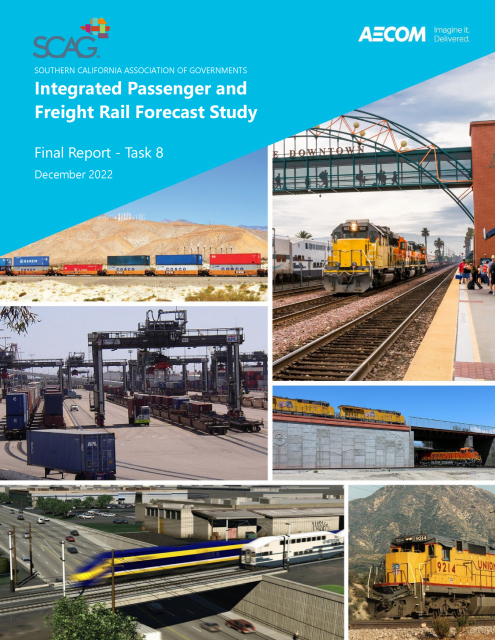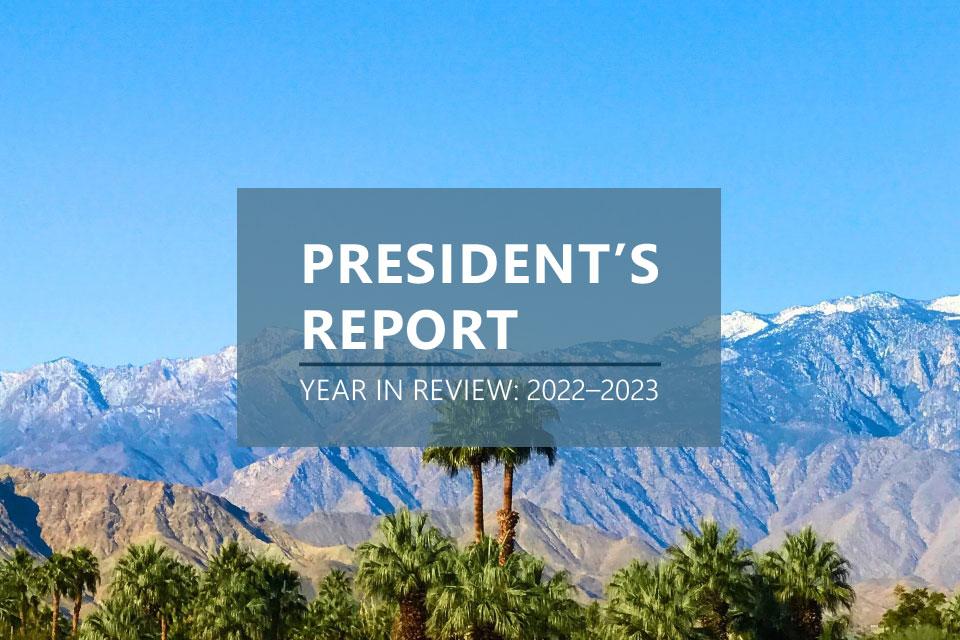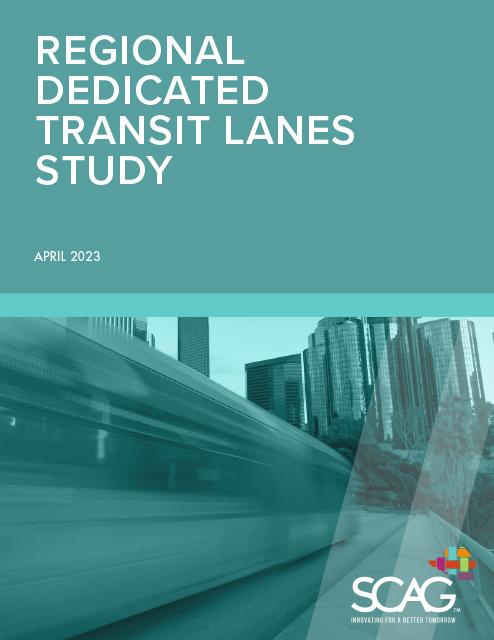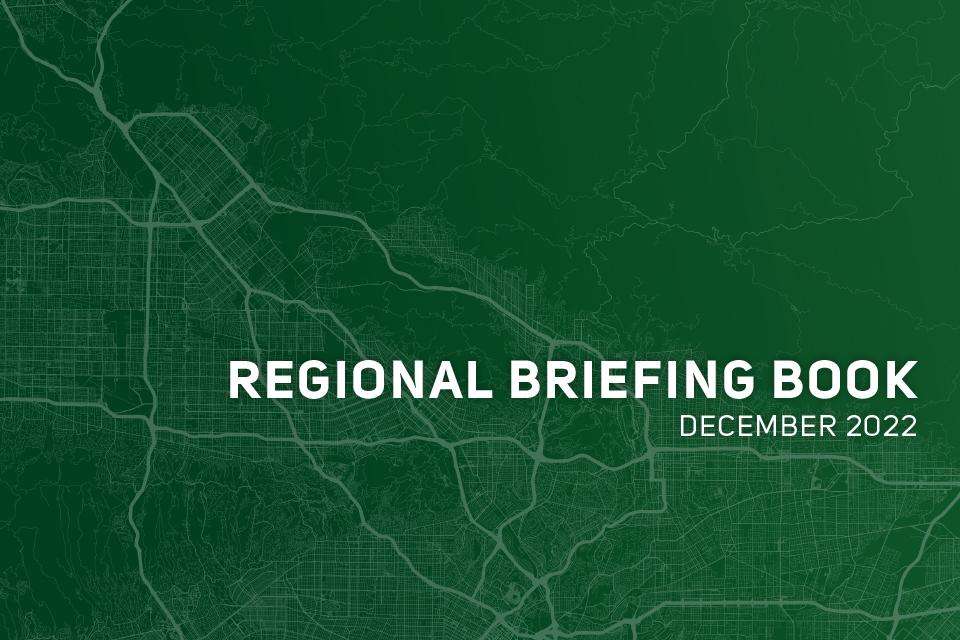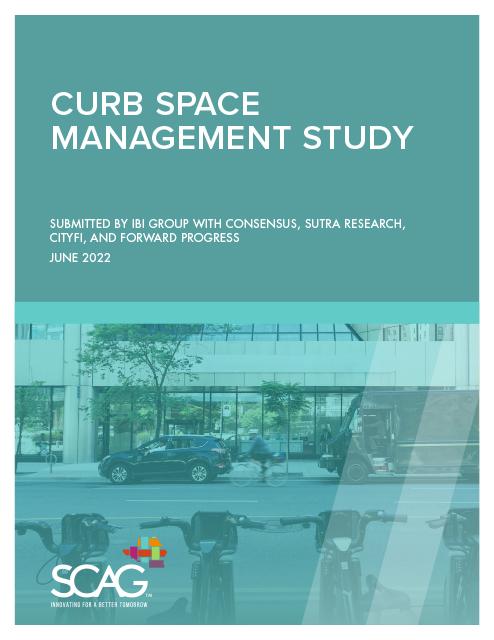Clean Cities Coalition Strategic Plan
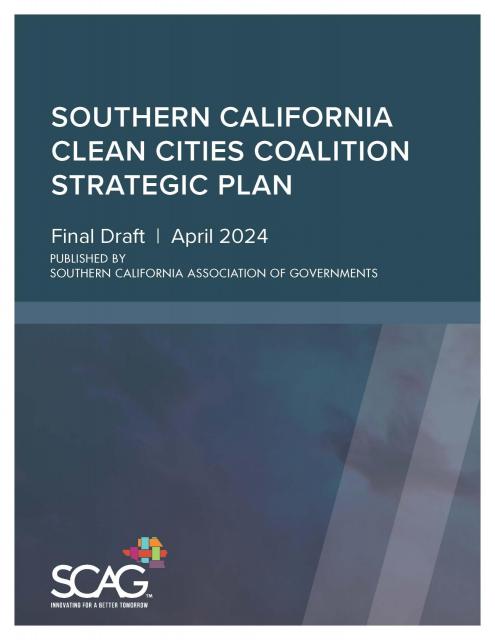 Clean cities coalitions are required by the U.S. Department of Energy (DOE) to establish and maintain a strategic plan, which serves as a multi-year guideline to identify objectives and activities to achieve specific goals, including a 16 percent increase in gasoline gallon equivalent displaced and a 20 percent yearly reduction in greenhouse gas emissions.
Clean cities coalitions are required by the U.S. Department of Energy (DOE) to establish and maintain a strategic plan, which serves as a multi-year guideline to identify objectives and activities to achieve specific goals, including a 16 percent increase in gasoline gallon equivalent displaced and a 20 percent yearly reduction in greenhouse gas emissions.
2023 Regional Briefing Book
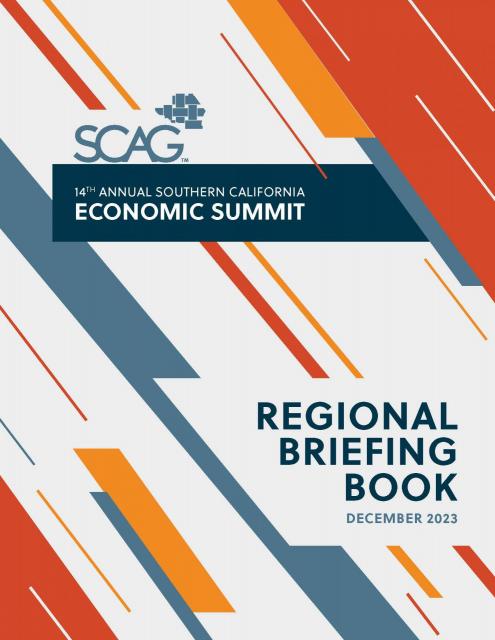 Released in conjunction with the 14th Annual Southern California Economic Summit on Dec. 6, 2023, the 2023 “Regional Briefing Book” provides current, detailed data on the state of the Southern California economy, with breakdowns of location-specific data for Imperial County, Los Angeles County, Orange County, Riverside and San Bernardino counties, and Ventura County. The economic news in 2023 is generally good in Southern California—the region continues to avert a long-predicted recession while collectively overcoming numerous economic hurdles. There are reasons to be cautious about the economic growth of the region and its localities in the coming year, however.
Released in conjunction with the 14th Annual Southern California Economic Summit on Dec. 6, 2023, the 2023 “Regional Briefing Book” provides current, detailed data on the state of the Southern California economy, with breakdowns of location-specific data for Imperial County, Los Angeles County, Orange County, Riverside and San Bernardino counties, and Ventura County. The economic news in 2023 is generally good in Southern California—the region continues to avert a long-predicted recession while collectively overcoming numerous economic hurdles. There are reasons to be cautious about the economic growth of the region and its localities in the coming year, however.
View the 2023 Regional Briefing Book here.
Clean Technology Compendium
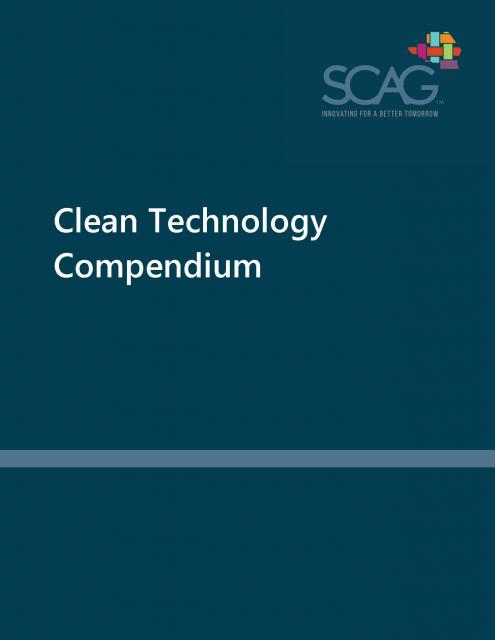 The SCAG Clean Technology Compendium provides resources and information for local planners and other stakeholders, public or private, working to transition Southern California’s transportation sector to a new generation of clean technologies. By providing an in-depth overview of zero- and near-zero-emission transportation technologies for cars, trucks, buses, trains and bikes, along with charging and fueling infrastructure and other supporting products, the clean transportation technologies explained in the Clean Technology Compendium can immediately improve air quality and reduce the negative public health outcomes throughout the region.
The SCAG Clean Technology Compendium provides resources and information for local planners and other stakeholders, public or private, working to transition Southern California’s transportation sector to a new generation of clean technologies. By providing an in-depth overview of zero- and near-zero-emission transportation technologies for cars, trucks, buses, trains and bikes, along with charging and fueling infrastructure and other supporting products, the clean transportation technologies explained in the Clean Technology Compendium can immediately improve air quality and reduce the negative public health outcomes throughout the region.
Read the Clean Technology Compendium.
Read the Clean Technology Compendium Factsheet.
Climate Equity Compendium
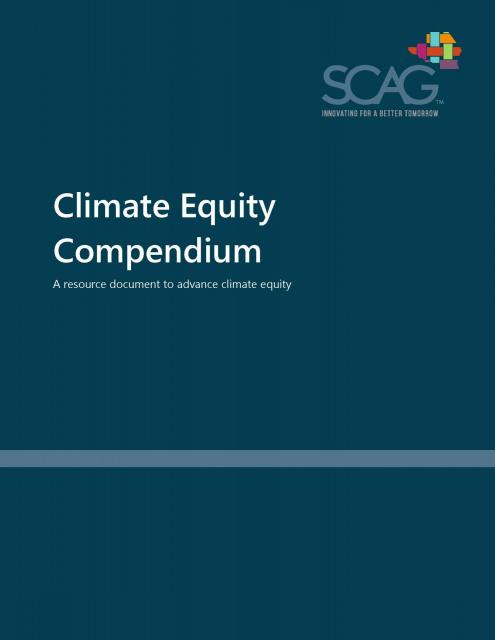 The Climate Equity Compendium provides resources for local planners in the SCAG region to advocate for and implement equitable and actionable solutions for their jurisdictions’ climate adaptation efforts. SCAG developed the Compendium in partnership with more than 60 local jurisdictions, focusing on the major concerns of climate adaptation for local agencies: providing resources to assist with staff and funding shortages, removing barriers to relevant data and resources and overcoming the challenges of effective, equitable outreach. SCAG will continue to update the Climate Equity Compendium as the challenges of climate equity evolve.
The Climate Equity Compendium provides resources for local planners in the SCAG region to advocate for and implement equitable and actionable solutions for their jurisdictions’ climate adaptation efforts. SCAG developed the Compendium in partnership with more than 60 local jurisdictions, focusing on the major concerns of climate adaptation for local agencies: providing resources to assist with staff and funding shortages, removing barriers to relevant data and resources and overcoming the challenges of effective, equitable outreach. SCAG will continue to update the Climate Equity Compendium as the challenges of climate equity evolve.
Read the Climate Equity Compendium
American Community Survey 2022 Data Release
The extent of the changes brought on by the COVID-19 pandemic are still becoming clear. This report examines new data from the American Community Survey to provide insights into how demographic, economic and housing trends in Southern California have changed between 2019 and 2022—and what has stayed the same.
This report compares several topics in demographic, economic and housing conditions across the United States, California, the SCAG region, and each of its six counties. The topics include:
The Influence Of Accessory Dwelling Unit Policy On The Contributing Factors To ADU Development
An Assessment of the City of Los Angeles
SCAG and California State Polytechnic University, Pomona’s Urban Planning Department collaboratively published a peer-reviewed paper in the renowned Journal of Housing and the Built Environment highlighting the Accessory Dwelling Unit (ADU) Potential project. The paper investigates the impact of Los Angeles’ ADU ordinance on property and neighborhood characteristics in relation to ADU development. Multilevel, logistic, regression models reveal that the ordinance has diversified the types and locations of ADU construction, which ultimately reduces the influence of pre-existing property characteristics. The paper suggests that the ordinance likely attracted ADU development in areas with better bus transit accessibility. These findings offer valuable insights for jurisdictions seeking to create effective policies to support ADU development.
Read the full paper.
Integrated Passenger and Freight Rail Forecast Study
The SCAG region includes the Port of Los Angeles and the Port of Long Beach comprising the largest port complex in the Western Hemisphere driving substantial volumes of imports and exports. The region also includes the two largest Class I railroads in North America, BNSF Railway Co. and Union Pacific Railroad Corporation, which facilitate the movement of goods for local and national consumption. Both the rail and port systems are supported by extensive intermodal facilities, freight corridors and access roads, that connect with the largest industrial warehouse and distribution cluster in the United States. At the same time, the SCAG region provides an extensive commuter passenger rail system.
President’s Report – Year in Review: 2022-2023
This report summarizes the accomplishments of SCAG during President Jan Harnik’s term covering the period 2022-2023. The featured accomplishments highlight the agency’s extensive work to identify and address the needs of the region and promote sustainability, prosperity, and quality of life improvements for all Southern Californians.
Download the President's Report Year in Review 2022-2023.
Regional Dedicated Transit Lanes Study
The SCAG region has ambitious goals to reduce greenhouse gas emissions (GHG) in transportation, the number one cause of climate change, in part, by reducing single-occupancy vehicle trips and increasing transit mode share. A key step toward meeting these goals, as well as local and county goals for mobility and equity, can come from improving the speed and reliability of transit services throughout the region.
Accessory Dwelling Unit Potential in the SCAG Region
This research comprehensively examines the capacity of Accessory Dwelling Unit (ADU) development regarding ADU implementation in the Southern California Association of Governments (SCAG) region by conducting a series of analyses at the local and regional levels. This research focuses on the eligibility of parcels for developing detached ADU and excludes Junior ADU (JADU), garage conversions, and non-conforming ADUs.
View the ADU Final Report
2022 Regional Briefing Book
Released in conjunction with the 13th Annual Southern California Economic Summit, held on Dec. 1, 2022, this year’s Regional Briefing Book provides an overview of the SCAG region economy today, as well as an outlook for the counties.
Curb Space Management Study
The primary purpose of the Curb Space Management Study (CSMS) has been to take a comprehensive and multimodal review of congested and complicated curb space locations within the SCAG region. With a need for improved mobility, reduced congestion and vehicle miles travelled (VMT)/vehicle hours travelled (VHT), and air quality benefits such as Greenhouse Gas (GHG) emissions, and now COVID-related impacts being critical to the region and its localities, a clear need exists to assess policies, strategies, and infrastructure investments, and their impacts on curb space activity.


